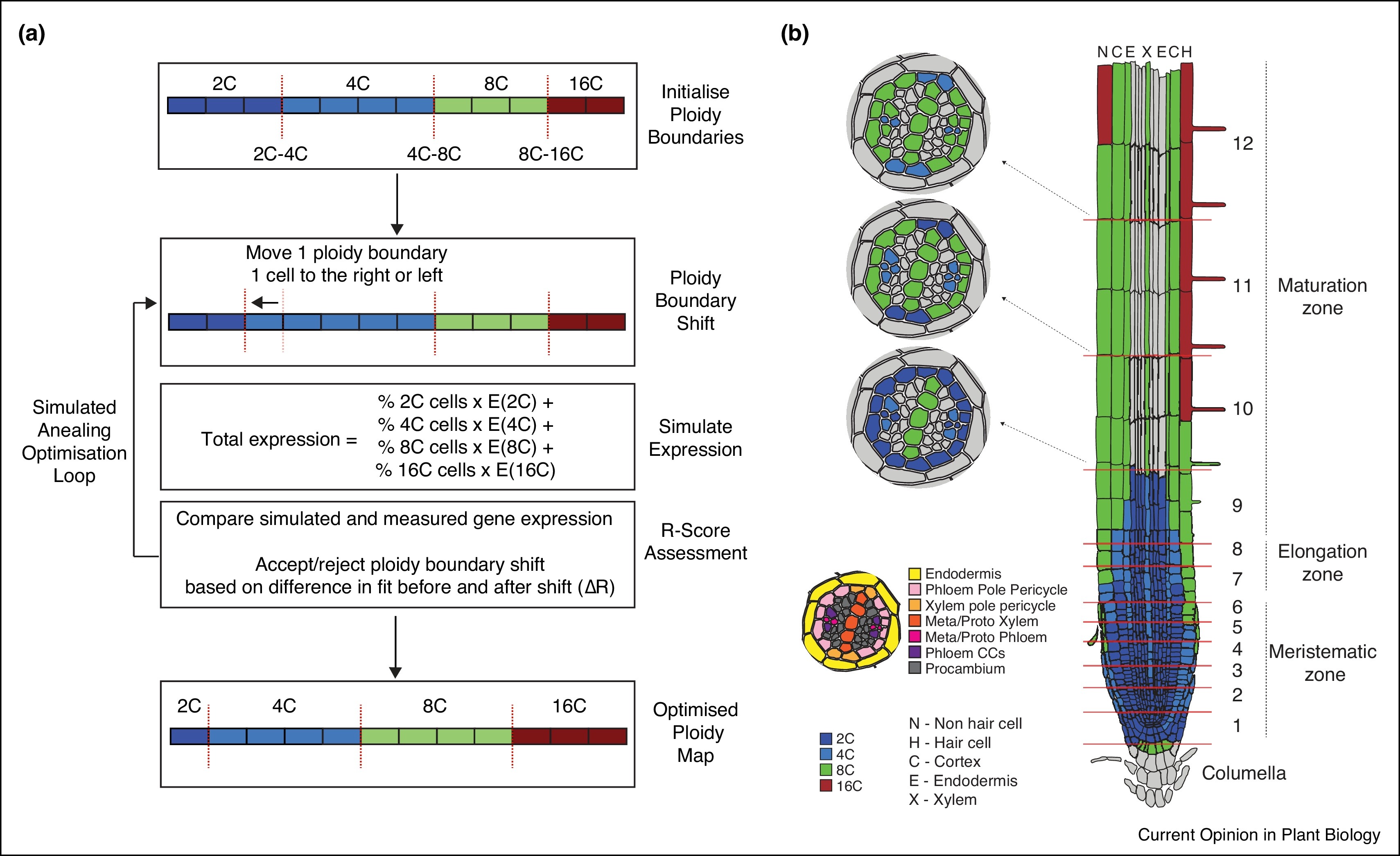In many plant species, exit from the division cycle is accompanied by the onset of endoreplication representing a modified version of the normal mitotic cell cycle during which DNA is replicated without mitosis. Endoreplication typically occurs in large, metabolically active, and highly specialized cells, although it can be found as well in cells that do not match this description.
Mitosis, or cell division, involves a duplication of the chromosomes of the mitotic cell, which are subsequently distributed between two daughter cells. Contrastingly, endoreplication involves chromosomal DNA replication without intervening mitosis or cytokinesis, leading to an increase in the ploidy level. Mitosis and endoreplication are thus two different paths a cell can follow during the cell cycle. The process of endoreplication is widespread among eukaryotes, although most prevailing in plants. However, despite its common nature, the physiological role of endoreplication is poorly understood. Often a correlation between the DNA content and cell size is observed, but this relationship is not universal. Other hypotheses link endoreplication with metabolic activity, maintenance of the optimal ratio between nuclear and organellar DNA, or protection against stress. Additionally, the endoreplication process probably plays an important role in the differentiation of post-mitotic cells, as endocycle onset often characterizes the switch between cell proliferation and differentiation. As such, comprehending how cells start to endoreplicate might help to understand how cell cycle exit is initiated.
Our molecular analyses indicate that the onset of endoreplication is controlled through a robust network, including the involvement of positive and negative feedback mechanisms. Currently, we use key regulators of this network to perturb endocycle onset in a tissue- and cell-specific manner, followed by a comprehensive analysis of the effects on plant growth under control and stress conditions. The results of this project may eventually result in the development of new strategies to cope with yield losses induced by environmental stresses.

